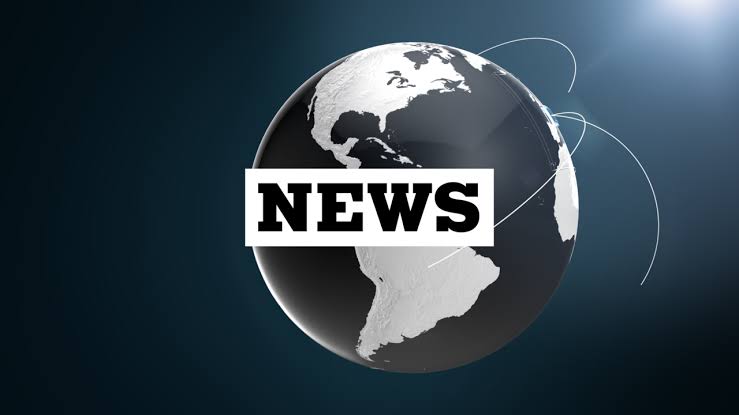It may be safely argued that the celebrated fervor and potency with which the National Agency for Food, Drug Administration and Control (NAFDAC) fought fake and adulterated drugs under the headship of the late Professor Dora Akunyili have receded significantly, presently. Akunyili, the most decorated Director-General of NAFDAC, we recall, once referred to drug counterfeiting as “the highest form of terrorism against public health”; and using NAFDAC as a veritable vehicle, she fought like a bull to combat the scourge while at the helm in the agency.
But it is obvious that the fake and adulterated drugs’ trade runs in the blood stream of many crooks in the chain, namely: manufacture/production; as well as sales. The Lagos State Government said recently that it shut at least 33 pharmacy shops and patent medicine stores in parts of the metropolis for contravening stipulated regulations on drug production, importation, sales or display for sales, distribution, hawking, adulteration and the possession of drugs by illegal operators. Some of the outfits involved allegedly embarked on drugs’ sales without being licensed by relevant regulatory authorities; and in breach of some of the rules specified as requisite for being in the business; while others were penalized for parading counterfeit and fake drugs.
The menace of fake and counterfeit drugs and the dubious dealers fronting same in the country had repeatedly manifested in avoidable deaths, traumas and declining status of Nigeria as a nation, being the hub of West Africa’s regional pharmaceutical distribution business. The heavy socio-economic and psychological costs on the nation, citizens and the economy are, indeed, unquantifiable. One of the most cited cases was the 2003 fatal experience, when the International Children’s Heart Foundation’s humanitarian gesture to operate on some sick children at the University of Nigeria Teaching Hospital (UNTH), Enugu, ended in crisis, as the adrenalin administered on them to restart their hearts turned out to be ordinary water. Four of the children died as a result.
(1).jpg) Global consciousness that counterfeit drugs are mass killers is underscored by the fact that the World Heath Organisation (WHO) set aside June 8, every year as World Anti-Counterfeiting Day. The day provides all WHO-member countries the opportunity to reflect on the activities of drug counterfeiters and evaluate the efficacy of the measures put in place to combat the plague. Since the establishment of NAFDAC in 1992, however, it scarcely injected commensurate quantum of energy into fighting fake and adulterated drugs until during former President Olusegun Obasanjo’s civilian era, when the agency’s combative efforts in raiding shops, closing open drug markets, especially in Onitsha and Kano, among others; and publicly burning confiscated fake and adulterated drugs, kept many out of the business. The agency deployed state-of-the-art technology – mPedigree; codification and serialization; Truscan, a hand-held device that helped in detecting counterfeit medicines on the spot; Mobile Authentication Service (MAS), which used short message services for end-user regulated medication authentication; and the Radio Frequency Identification Device (RFID), which could verify regulated products; all of which assisted tremendously in checking fake drug manufacturing.
Global consciousness that counterfeit drugs are mass killers is underscored by the fact that the World Heath Organisation (WHO) set aside June 8, every year as World Anti-Counterfeiting Day. The day provides all WHO-member countries the opportunity to reflect on the activities of drug counterfeiters and evaluate the efficacy of the measures put in place to combat the plague. Since the establishment of NAFDAC in 1992, however, it scarcely injected commensurate quantum of energy into fighting fake and adulterated drugs until during former President Olusegun Obasanjo’s civilian era, when the agency’s combative efforts in raiding shops, closing open drug markets, especially in Onitsha and Kano, among others; and publicly burning confiscated fake and adulterated drugs, kept many out of the business. The agency deployed state-of-the-art technology – mPedigree; codification and serialization; Truscan, a hand-held device that helped in detecting counterfeit medicines on the spot; Mobile Authentication Service (MAS), which used short message services for end-user regulated medication authentication; and the Radio Frequency Identification Device (RFID), which could verify regulated products; all of which assisted tremendously in checking fake drug manufacturing. Reports credited not too long ago to NAFDAC’ Director of Special Duties, Abubakar Jimoh, that the agency had reduced the incidence of fake drugs in the country from 64 percent in 2008, based on a WHO study on Africa, to 6.4 percent in 2011, buttressed the gains NAFDAC recorded during the Akunyili era and, perhaps, shortly after. It is doubtful, however, that the NAFDAC of today is the awesome combatant it used to be in the anti-fake and counterfeit drugs’ battle. The agency should strive to maintain its vibrancy in the campaign to avert a possible resurgence of the illegal business. The experience of Lagos may well be a pointer to what may be happening in other states and locations with legendary notoriety as hubs of drugs adulteration and counterfeiting.
While Lagos and other states may be putting in their best individually to ensure compliance with regulations and discourage the production and sale of counterfeit drugs, we believe such efforts would be more effective and better results achieved if NAFDAC operates in concert with state agencies charged with fake and counterfeit drugs’ control. Such synergy would provide ample opportunity for the sharing of intelligence and technology required to boost the campaign. Being the national agency set up strictly to tackle the rot called fake and counterfeit drugs, NAFDAC should play the role of a catalyst. It should be aggressive enough in leading the fight.
Source: Nation News
ABUJA: Training Schedule for Basic Life Support BLS, Pediatric Advanced Life Support (PALS), Advanced Cardiovascular Life Support ACLS, First Aid, CPR, AED
PORTHARCOURT: Training Schedule for Basic Life Support BLS, Pediatric Advanced Life Support (PALS), Advanced Cardiovascular Life Support ACLS, First Aid, CPR, AED
LAGOS: Training Schedule for Basic Life Support BLS, Pediatric Advanced Life Support (PALS), Advanced Cardiovascular Life Support ACLS, First Aid, CPR, AED


